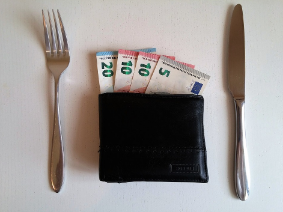One of the first things you should do as a Forex trader is open up a demo account. After all, and this is especially true in the Forex world, you can run a demo account without risking any money and use it to test a broker, test new trade strategies and just become familiar and comfortable with the markets.
It is important to understand, however, that the idea of demo trading, sometimes referred to as “paper trading”, differs slightly from a live account. Just because you’re profitable when your paper trading, doesn’t mean that you’ll always be profitable on a live account. It could be a sign, but it isn’t guaranteed.
The benefits of paper trading
There are some major advantages to paper trading over starting out with live capital. After all, if you are just learning how to trade, it’s very likely that you’re going to take a lot of losses. You wouldn’t expect to walk into a job and immediately expect to become a star, but for some reason a lot of traders think that will be their experience. They mistakenly believe that they’ll start trading and will be instantly successful. Hopefully, if you are reading this article, you have a more realistic, healthier understanding of how Forex trading works.
Any strategy should be tested in a low risk environment, and I can’t think of a more low-risk environment than paper trading. A demo account allows you to see how the market would have treated your system, which can give you valuable insights about your strategy. It also does something else that most people don’t talk about: it builds up your confidence. After all, if you see that your system consistently makes money over the longer-term, then you will feel much more confident when you do take a couple of losses. You’ll know that over the longer-term you will make money. If you have a solid trading history you’ll feel comfortable staying with your trading system, rather than abandoning it at the first sign of loss on a real account.
 Another major benefit of paper trading is that when you come up with new strategies, you can use your demo account to see what your results would be in real market conditions. Once you’ve proven your new trading strategy you can start to risk real trading capital with it.
Another major benefit of paper trading is that when you come up with new strategies, you can use your demo account to see what your results would be in real market conditions. Once you’ve proven your new trading strategy you can start to risk real trading capital with it.
Paper trading can also teach you a lot of lessons. The number one lesson of course is something that I wrote about recently, patience. I think that the market doesn’t always offer nice opportunities, so therefore you will have to wait for those traits. By waiting to trade live capital, you are testing your patience as far as Forex trading is concerned. The skill of patience will serve you well when you begin trading on a live account.
Some of the cons of paper trading
Obviously, demo trading is not just a bed of roses. The most obvious negative aspect to paper trading is that you can put a lot of work in, and you don’t get to hit the payday.
Another problem with demo trading is that it’s far too easy to simply place trades randomly. If you do that, you may find yourself unpleasantly surprised once you get into the live markets. I think that the biggest surprise that people who don’t take demo trading seriously face is that suddenly, there is a lot of emotion involved in those trades that don’t quite go the way you thought they would. And that’s the biggest problem in a nutshell: demo accounts don’t simulate the range of emotions that you will feel when winning and losing money.
Unfortunately, I have received emails from various traders around the world that have told me that they were profitable with demo trading, but suddenly struggled once it came to live money. I suspect that psychology comes into play more than anything else. After all, is very easy to say, “well my system might lose three trades in a row, but over the longer-term it has a profitability of 55% winners.” It’s totally different when money is involved. Because of this, I believe that it’s necessary for a trader to enter the market very slowly, even after trading on a demo account.
What you should do at the point of going into the markets with live money is figure out how much you can lose without it affecting any financial aspect of your life, perhaps something as little as $100. At that point, I would trade pennies per pip, giving you an opportunity to play with live money. By jumping straight to a $10,000 account out of the paper account, you are not simulating real-life starting conditions, and you’re increasing your chances of a psychological stumbling block in the future.
The bottom line
Paper trading accounts are crucial for all of the reasons mentioned above. However, they are not the be-all and end-all of trading - they are simply another tool to hopefully increase your chances for success. I would not read too much into a demo account other than a confidence building exercise, and of course a testing area once you understand the markets and are ready to build a new trading strategy.
